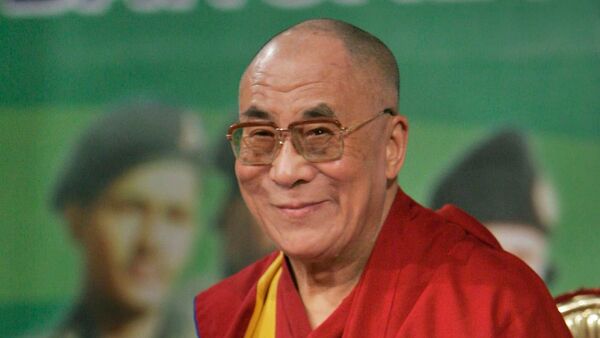The Dalai Lama often jokes that his body, sustained for decades on daal-bhaat, is Indian; his mind, informed by the Nalanda masters of yore, is also Indian. Over the past few years, the call to confer India’s highest civilian honour, the Bharat Ratna, upon the Dalai Lama has gained strength. It is time to heed this call.
In 2019, 200 Members of Parliament across party lines, led by former Himachal Pradesh CM Shanta Kumar (of the Bharatiya Janata Party), signed a memorandum urging the Centre to award the Dalai Lama a Bharat Ratna. Kumar is part of the All-Party Indian Parliamentary Forum for Tibet, an informal group of MPs first established in 1970 to raise the Tibetan issue on relevant public platforms, and led for some time by George Fernandes, a politician who was a long-time supporter of the Tibetan struggle. In August 2022, the Forum, now chaired by Biju Janata Dal MP Sujeet Kumar, passed a resolution to press the demand and invite the Dalai Lama to address a joint sitting of both Houses of Parliament. Many academics, students and public intellectuals also created the ‘Bharat Ratna for Dalai Lama’ initiative, a voting campaign to coalesce public support.
There are some who argue for the Indian government to refrain from publicly recognizing the Dalai Lama to avoid offending China, which has long accused the Tibetan leader of being an anti-China separatist. In early 2018, events by the Central Tibetan Administration commemorating the 60th anniversary of the Dalai Lama’s escape to India were variously cancelled or moved elsewhere from Delhi. The Indian government issued a directive advising bureaucrats and leaders not to attend these events because it was a “very sensitive time” for the Sino-Indian relationship.
But the Dalai Lama is not a nebulous ‘Tibet card’ to be deployed at opportune times at the high tables of geopolitics. India should honour him in recognition of what he has done for India in the last six decades.
India has a proud tradition of honouring those who, while not born here, made it their home and devoted their lives to its service. Mother Teresa (1910-1997), who, like the Dalai Lama, lived almost her entire adult life in India, was awarded the Bharat Ratna in 1980. We also honoured the anti-apartheid leader Nelson Mandela (1918-2013) in 1990. Both share with the Dalai Lama the distinction of being Nobel laureates for peace.
The Dalai Lama is an important religious leader for Buddhist communities across the Himalaya. Millions of Himalayan Buddhists in India and the neighbourhood look to him as ‘Gyalwa Rinpoche’, the precious triumphant one. The Tibetan exile community in India has played a key role in institution-building to revitalize Tibetan and Himalayan studies in India. Tibetans have rebuilt several important monastic institutions, which welcome monks and nuns from India’s Himalayan states into their order, and have served as pedagogic nodes for extending and preserving Tibetan Buddhism within India.
In December 2022, the Indian Himalayan Council of the Nalanda Buddhist Tradition passed a resolution on the contentious issue of the Dalai Lama’s reincarnation. It stated that the people of the Himalaya will never accept a candidate for the Dalai Lama chosen by the People’s Republic of China “for political ends,” and will denounce the move.
The Dalai Lama has personally championed India on several global platforms. As a proponent of ahimsa (non-violence) and karuna (compassion), principles he attributes to India or India’s Buddhist traditions, he has been a pre-eminent advocate of India’s cultural and philosophical heritage and its Gandhian legacy.
Gopalkrishna Gandhi, former governor of West Bengal, wrote of the irony of China’s president being shown around Gandhi’s ashram at Sabarmati by Prime Minister Narendra Modi while “the Mahatma’s most cognate spiritual heir in India today, the Dalai Lama, half a century and more after having become one of us, must remain the gem we will not call by its name.”
In 1999, when the Nobel Committee’s deliberations were made public, it was revealed that not awarding the Peace Prize to Mohandas K. Gandhi was among its most regrettable omissions. In fact, had Gandhi lived for a few more months, he would have been awarded the Nobel in 1948. In his honour, the committee had no other awardees that year, declaring that “no suitable living candidate was found.”
The 1989 Nobel for the Dalai Lama was, in part, a salute to Gandhi. The Dalai Lama acknowledged as much in his acceptance speech: “I accept it as a tribute to the man who founded the modern tradition of non-violent action for change—Mahatma Gandhi—whose life taught and inspired me.”
Such an omission should not be repeated. To recognise the Dalai Lama’s contributions, he must be conferred the Bharat Ratna as soon as possible. As Omair Ahmad of the Third Pole told our students, “He would grace the award more than it would grace him, and we should have done it long ago.”
Download The Mint News App to get Daily Market Updates.
More
Less
Updated: 05 Jul 2023, 10:30 PM IST
#confer #Bharat #Ratna #Dalai #Lama
